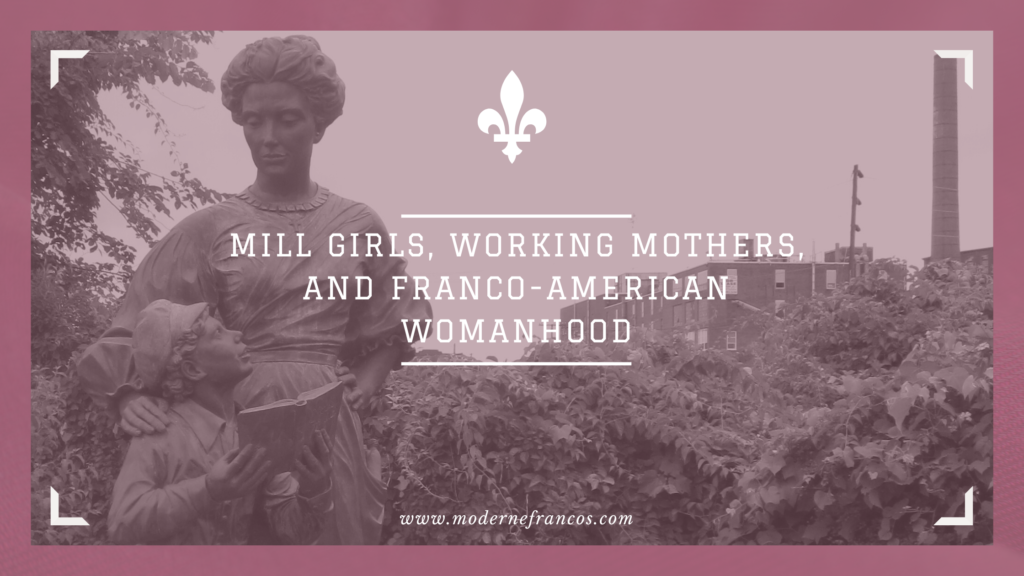
During the 19th and 20th centuries, the Industrial Revolution in New England opened the doors for women entering the workplace. Although, hiring these young women was done out of exploitation in the incredibly rough work environments of the mills.
Even so, French-Canadian immigrant women and their Franco-American daughters had never experienced the sense of liberation brought to them by working for their own income. To the women who had experienced rural life in Québec, the mill towns and cities of New England were booming with opportunities in comparison.
But these women, whether single or married, were often discouraged from becoming working women. The expectation of strictly staying at home was put on them by the teachings of the Catholic faith and male leaders in the French-Canadian and Franco-American community.
However, the many young and single “Mill Girls” had their own ideas of defining their womanhood through postponing marriage to gain what economic independence they could at that time. Whereas some married women wanted to bring in extra income when their husbands’ earnings weren’t enough to provide for their families.
